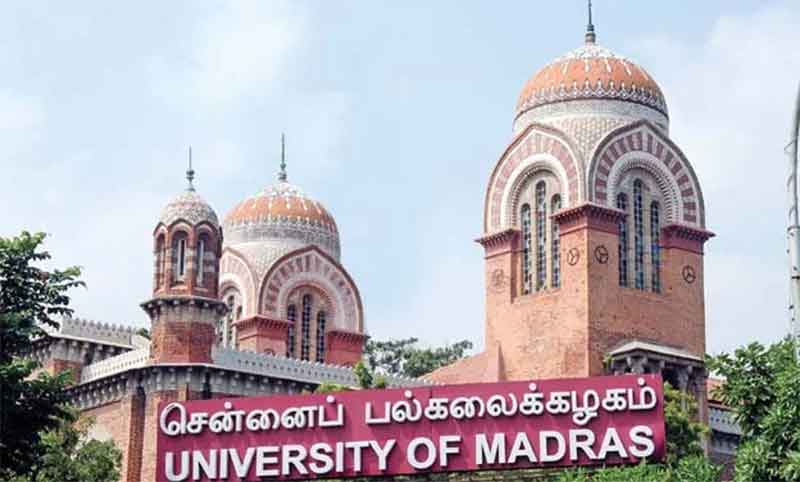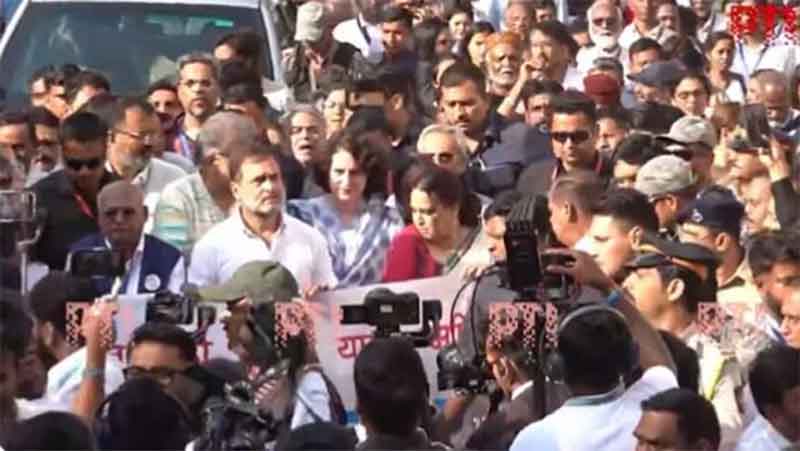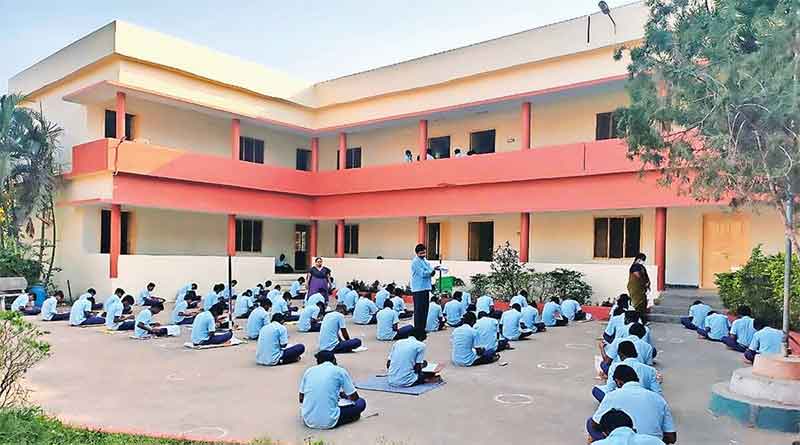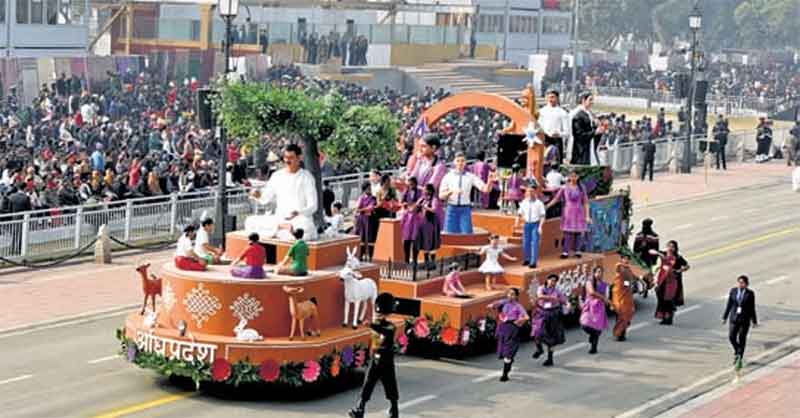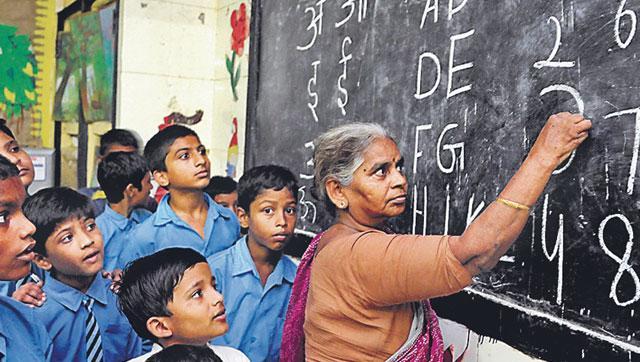
English medium at primary school level is certainly harmful, more so to the rural and poorer masses. That is a key lesson in my life’s experiences, both as a student and as a teacher. It may be useful only to the elite, including those of dalit bahujans, and to the vote bank politics of ruling classes.
I am a teacher of maths, arithmetic to be precise, not a great teacher but an unconventional one: A school teacher without a school; without a place; without a job; without regular salary. I am a rare kind of a teacher who taught maths to more than one lakh students over 30 years. A teacher who ‘taught’ how to teach maths to more than 2000 teachers, while myself being without qualification. How? I was a product of my times, of circumstances, personal and social; first personal as below:
I have been thinking of writing my story, made only some half-hearted attempts. Now I am telling it briefly here in the context of controversy created by Prof Kancha Ilaiah Shepherd, to contest two of his recent pet theories, both linked to what he sees is Brahminism. One is about “Brahminical communists,” he named DV Rao in particular. (see Can Brahmins Bring Revolution: An Assessment Through The Prism Of Tarimela Nagi Reddy, in countercurrents.org, August 18, 2020). (Discussed in Part-1 of this article, published on September 8, 2020). He invented a theory and argued it was vegetarian “Brahminical communists”, who blocked revolution. In Part-1, I refuted his theories on the basis of my observations as a dalit-born Marxist, as a product of Telangana agrarian revolution and as a teacher. I wrote:
“Marx expected socialist revolution to happen in most advanced capitalist countries, like England, France and Germany. Most of them are predominantly non-vegetarian also. But revolution did not happen still. We hope Brahmins and Brahminism are not coming in the way there! Does it look ridiculous?
https://countercurrents.org/2020/09/kancha-ilaiahs-theories-as-seen-through-by-a-dalit-born-teacher/
The other pet theory is about Ilaiah’s insistence on English medium for all children, more so for SCs, STs, Bahujans. He linked it with the above theme now. He had asserted : “The only way is to introduce English medium education in all Government schools from class one, as Macaulay wanted.”
See: Macaulay Putras And The New Education Policy: Shudras/Dalits/Adivasis Must Be Vigilant , published on August 1, 2020. It is one such article by him.
He has been saying it is a brahminical conspiracy that denied it to them. In fact, this is a larger question. When genuine criticism was made about English medium, that is being politicalized by its advocates. He blames “brahminical communists” even for this. By alleging brahminical conspiracy, he drags it all into caste politics which is already dividing and diverting the society. Therefore I discuss it in the context of my experiences as a student and a teacher who taught one lakh students. (this is Part-2 of the article).
I assert : English medium at school level greatly harms, particularly village-based and poor students, more so dalits and bahujans whose parents are poorly, if at all, educated. That is the lesson of my life as a rare, self-made teacher who observed more than one lakh students in hundreds of schools over the last 30 plus years.
When I say this, I have one advantage. I was born, brought up and schooled in a poor dalit rural family of a backward region in Telangana. Nobody can accuse me of brahminical conspiracy that allegedly denied English medium for all children, from primary level itself, more so for SCs, STs, Bahujans. Those who are opposing such a policy are accused of that. They are asked : In which medium do you get your children taught? It is really embarrassing for most of the elite, more so of cities and other urban areas. But that question is no answer to the needs of tens of millions of poor children, most of them of rural origin.
I only remember one Telugu proverb : Puli ni choosi nakka vaata pettukunnadata! Having looked at the tiger with its beautiful stripes, the petty fox burnt itself with a rod to get such stripes/marks. The educated urban elite, with vast resources and good English, can not be imitated by the poor and their children. But it is notable that great achievers now in their seventees, including NRIs, were mostly educated in mother tongue at school level.
I am a unique teacher who reached out to lakhs of students in TS, AP, and across India. Wherever I went, I found how English medium is a curse to lakhs of poor students, people in general, making them weak, vulnerable and dumb, despite all their knowledge and skills, in front of English-knowing snobs. It is an agent of dis-empowerment, and definitely not of liberation as scholars like Ilaiah seek to paint it.
English medium at school level greatly harms, particularly village-based and poor students, more so dalits and bahujans whose parents are poorly, if at all, educated. That is the lesson of my life as a rare, self-made teacher who observed more than one lakh students in hundreds of schools over the last 30 plus years.
When I say this, I have one advantage. I was born, brought up and schooled in a poor dalit rural family of a backward region in Telangana. Nobody can accuse me of brahminical conspiracy that allegedly denied English medium for all children, from primary level itself, more so for SCs, STs, Bahujans. Those who are opposing such a policy are accused of that. They are asked : In which medium do you get your children taught? It is really embarrassing for most of the elite, more so of cities and other urban areas. But that question is no answer to the needs of tens of millions of poor children, most of them of rural origin.
I only remember one Telugu proverb : Puli ni choosi nakka vaata pettukunnadata! Having looked at the tiger with its beautiful stripes, the petty fox burnt itself with a rod to get such stripes/marks. The educated urban elite, with vast resources and good English, can not be imitated by the poor and their children. But it is notable that great achievers now in their seventees, including NRIs, were mostly educated in mother tongue at school level.
Only a few STARS like those in filmdom are allowed to shine in that world of English medium. Thousands of organic intellectuals and dedicated comrades are outsmarted and ignored by the English milieu. Learning English is indeed a necessity for those (10%) who want to reach out, but surely it is a luxury and a curse to (90%) tens of millions students, more so of dalit bahujan communities. It is bound to widen the already vast gulf that keeps away the tens of millions, while helping a few pigmies and upstarts to become snobbish stars as they get published in English.
Bojja Tarakam (1939-2016 ), dalit born, humble but great writer, scholar, activist, lawyer wrote a book in Telugu, If Police Arrest you (1981), a must read legal handbook, in India’s Police State. It is scholarly yet popular, with clinical precision. It sold “lakhs of copies” according to its publishers. He was an organic intellectual of the people. But those who get published and reviewed in English ( with a few thousand copies ) proclaim themselves as great intellectuals, “internationally” recognized. And do not recognize such intellectuals who worked and died for people. They have the temerity to disparage a Balagopal who worked and died for people, or blindly write like: “I have not found a single para which is creative in DVR’s writings. The RSS vegetarianism and DVR’s vegetarianism and uncreative writing are part of the package.” (CC September 7, 2020). But people do not care such snobs.
India had a Constitutional mandate (Article 45) for “free and compulsory education” (for all children age 6-14) by 1960. It has been made, under RTE, a Fundamental Right, wef 2010 April. Mark Twain speaks of lies, damn lies and statistics : Thus India claimed, a few days ago on International Literacy Day a literacy rate of 77.7 %. But the real functional literacy (those who can read a few lines in mother tongue) is not even half of the literacy officially claimed. Thus India’s functional illiterates today are more than India’s population of 1947. English has always been an official language as per the Constitution. Despite that, hardly 5 to 10% population has functional literacy in English. The Pratham / ASER surveys show it is a really bad situation in the school going children, majority whom are unable to read a few lines even in their mother tongue. (More on it later). If English medium at school level is made compulsory, it would be a bigger farce of Indian ruling classes, and yet another tragedy for 80-85 % , the masses.
India has around 3-4% of (physical, visual, hearing etc) handicapped for whom a few reservations are made. If English medium is further pushed, it makes even the educated few as linguistically handicapped. And that will be the biggest handicapped category of India. I am one of them who needed help to write in English.
I can say this as I saw these things every day of my 30 plus years as a teacher who taught one lakh students. Most of them were from poor, dalit and bahujan families, and from hundreds of places across TS and AP. A good proportion of them were English medium students too, who feel handicapped. There perhaps can be no survey that can match and contest my vast and deep observation. It was a unique experience I had.
Hope this brief story, of my journey in the field of education of the poorest, would be of interest and use to general readers, including educationists and social scientists.
*** ***
My journey : How I became what I am
I am Chandraiah, popularly known as Ankela mamayya ( in Telugu, it means Uncle of Numbers). I have a unique story to tell, interesting for various reasons. I was born (in 1965) to totally illiterate parents, who were poor dalit (SC) peasants cum agricultural laborers in a backward region : Of course, my native place is in Suryapet and Nalgonda district, which made a mark in Indian history as the centre of historic, anti-feudal, Telangana peasant struggle of 1946-51 which itself was a great school of struggle for lakhs of people. Suryapet was called Stalingrad, the battle land of Soviet Union. DV Rao was its chief architect. See article of August 19, 2020:
“DV Rao the father of the theory and practice of agrarian revolution in India” : Anand Teltumbde
My father too was a communist, just a follower, like lakhs of people in our district. In hundreds of our “communist villages,” as they used to be called, there was almost total political polarization : it was common to introduce one “as of our own party.” Or to say, “ no, not of our party.” That was our predominant identity. Then only caste etc., which comes up in marriage, and some rituals and customs of each community.
I was a Telugu medium student, poor in English; poorer in maths scoring 34 % marks in my School Final Board exam (Standard X). Because of grace marks added that year, I somehow passed.
Socially and politically, however, I was active, and ideologically I have been a communist all through, influenced by Marxism. Even as a young school boy, I was part of Students Federation, led by communists, and was a leader, elected President in students’ union election. My being a dalit did not come in the way. Like me dozens of dalits were elected leaders. Caste was not a problem in those days, in our area. That was because of communist influence, strongest in our district, in the people. In the Students Federation there were leaders from all castes, including muslims, SCs and STs; caste discrimination was not there, in those days.
Even as a school boy, I conducted a night school in our small hamlet near Tipparty village (now a Mandal Hq). Night schools for poor are not new; they were commenced by the communists in 1940s in Nalgonda dt. I was brought up in my sister’s home there. I taught all youth there, cent per cent. The ground was our slate, and fingers our pencil. Later, we mobilized some broken slates, and chalk-stone available there. We youth used to keep our village roads and drains clean by voluntary team effort, decades before Swatch Bharat. .
My area, Suryapet, was a key centre of the Telangana struggle (1946-51); it became a fort of communists, our elders told us. In India’s first (1952) elections all seats in our dt. were swept by communists, defeating Congress of Gandhi, Nehru and Patel, so soon after 1947 August, and 1950 Constitution. They had no money and spent none at all. Uppala Malsuru (SC) was elected communist MLA four times (1952, 57, 62,67 ) in a row from Suryapet, the epi-centre of DV’s activities. Nalgonda Loksabha seat was won by communists by a huge majority : Ravi Narayana Reddy and Sunkam Achchaalu (SC) were both elected in the double-member constituency. They together polled more than 73 percent votes. Congress polled 23 percent. SC Federation (founded by BR Ambedkar) polled 4 percent vote. SCs and STs were overwhelmingly with communists. In 1957, Telangana revolutionary communist leader DV Rao was elected MP from our district, of which he was the Founder Party Secretary, to begin with.
It was almost similar in Warangal and Khammam dts, which were key centres of Telanagana struggle. Despite worst repression (4000 shot dead, one lakh jailed in it) out of 44 Assembly seats contested, communists (as PDF) won 36. A few more were won by allies, socialists with communist support. (See part-1). We the poorest, including dalits, of that region were politically assertive, more conscious : That struggle liberated us from semi-slavery, vetti-begar, serfdom and gave us self-respect as never before. When I was born, I learnt later during the period when I was an activist, hundreds of villages in Nalgonda (and Khammam dts) were led by communists who were elected panchayat chiefs (Sarpanches). In most of the villages, dalits were among the respected leaders, respected even by upper castes. My being an elected and accepted as a student leader was no surprise.
Thus I was part of Students Federation, led by communists, and was a leader, elected President in students’ union election. I as a student attended political classes conducted by the party. Though I am not active in any party organization, till today, I continue to be with Marxist ideology. All my three children have that influence; they don’t believe in God, we are atheists and rationalists. That was how hundreds of youth, including SCs and STs were influenced, in vast parts of Telangana, for several decades. I am part of that trend. It was influenced by the political situation of those days.
I had to end my formal education, in Telugu medium, with Intermediate (plus-2 stage), that also in commerce stream, because of poverty. I had to make a living on my own, and joined as a teacher. I had to teach in a small private upper primary school, in the nearby backward village, Tipparty, now a Mandal Hq. There most of our students were from poor and many from illiterate families, with little resources. Children were also working in farms (own or as tenants) to help run the family. I worked there (1986-96) for almost 10 years, and taught maths and science for classes 1-7. The students were poor in education like I was. More so in maths, they don’t know most elementary arithmetic. In the year 1996 I resigned (my salary then was Rs. 250 per month) from the village school. During those 10 years, I made experiments, in meeting the challenge of how to teach such rural children with little resources, cross checked with children how far they learnt, and improvised my methods. I thank the school for all this.
*** ***
I had to re-learn and re-orient myself while teaching rural children
I studied in the University of my Life, like Maxim Gorky. So I thought I must say and do something to question the craze for English medium at primary school level itself. This was my journey :
In that school I noticed that 90% of the students were not able to understand the basics of mathematics, or rather arithmetics. That is the age when a child is exposed to formal learning, a key turning point. In that process, I had to re-learn everything. Science and maths are part of daily social life but in the class room, they are separated from social life and made too abstract for the student. The performance of most students in simple arithmetic was (is) worse than that of an illiterate vendor. It is the same even in urban poor.
My being schooled a little in Marxism motivated me, born poor, to see students with love and to struggle on HOW to teach the rural poor students.
I was worried, and thought deeply, how to tackle this problem among the students. With the help of stones and pebbles, and the floor as the black board, I tried to explain them the concepts in maths and taught tables : I started with 2 table. I noticed all the students were listening to the concept with great enthusiasm and then they understood clearly when I explained them practically by using stones. So from table ‘2’ to ‘9’ I explained the tables in the the same way.
My method was ‘learning by playing’. I started to create sales-marketing playing sessions in class rooms among the students. I asked to make currency by using papers. They started to sell and purchase vegetables and goods in the classroom, then finally they understood what is the use of maths through activity and discussions. Likewise about measurements, weights, distances etc.
So I helped students who learned how we use maths in daily life. The illiterate vegetable vendor and the construction worker, in course of making their living, know their maths, which is mostly not grasped by the Intermediate (plus two) student in class room. They pass exams by memorizing – whether in Telugu or English – and enter life without knowing them. Helping the student learn the concepts badly needs mother tongue : We have to go into daily life of the young student, grip his mind and heart. That is impossible in English, which is one more hurdle, for a student struggling to learn the concept. The school teacher himself, even today, is mostly poor in English. It is all the more so for a student whose parents or guardians are semi-literate, if not illiterate.
When I was teaching in Tipparty school, something suddenly struck my mind. ‘Are only these students here facing this adversity? Or the same situation prevails with respect of the students of other schools?
I decided and had visited 100 schools in 3 months. I observed keenly the students in all those schools. After observing the students, I understood that they are lacking in the concept and the explanation of maths, numbers, and mathematical tables. The teachers often were not tacking this problem.
I used to track Tenth Standard results. Out of those who failed at the Board exams, 60-70 percent of them failed in Maths, or English or both. I myself have been poor in English. But in maths, I could help. If I concentrate just for a week, even the poorest student would pass in maths of Tenth standard. If I get 15 days, they would surely get at least First class.
Removal of fear of maths, creating interest, and teaching concepts in mother tongue through practical exercises were key to teaching and learning maths, I learnt through my practice during 1986-96. Every student in class, the back-bencher also, should be helped by the friendly teachers, who should not be lecturers. In the process I struggled and struggled with the challenge of how to teach, and became a teacher of how to teach maths, though I had no formal training. These ideas got reinforced by my experiences with thousands of students in the later years.
Seeing my efforts, methods and successes, most of the former students and parents appreciated me. I sought and got a very good feedback. All were talking about the methods which I introduced in various schools.
That appreciation of everyone became an inspiration to me. So I decided to solve every mathematical problem by playing. By using flash cards & puzzles I tried to generate interest in the students. By using all these different type of techniques I taught the basics and ultimately I succeeded.
*** ***
Those who helped me to reach thousands of teachers and lakhs of students
There were many Communists, Rationalists, Humanists, Leftists in AP and TS who helped and facilitated my work in the last 30 plus years. I mention a few here :
Sadhana Educational Resource Centre, an NGO established in 1994 by a team led by activists and educationists led by Chikku Murali Mohan, has been a platform for me since 1998 till date. It worked on education of child labor, development of bilingual primers for STs and orienting teachers : I have been engaged in training maths and science teachers (covered several hundreds of them in batches) of both of private and Govt schools. I have seen most of them, like myself, were from Telugu medium; they themselves find it difficult to teach (more so sciene) in English medium. We can imagine the plight of students, more so if they are from rural and poor background.
MV Foundation (MVF, founded in 1981), is a leading NGO that worked on on elimination of child labor, child rights, and making education universal and compulsory. It had conducted Bridge Courses that brought children from informal to regular formal education. It focused on dropouts, of poor children, particularly girl children. MVF had worked in hundreds of villages, with co-operation of AP govt. With my experience and aptitude, I worked as a volunteer teacher in that project during 2000-2005. It was founded by Prof Shanta Sinha (1950-born, UoH), later funded by many agencies, UNDP included. For that work she was a Padma Shri (1998) awardee, and Magsaysay Award winner (2003 for social work). Incidentally, Shanta Sinha in her youth was associated with progressive and Left student movements. She had attended, I learnt later from friends, an 8-hour long interview (by six) JNU History Professors (led by Bipan Chandra) had with DV Rao on Telangana (in 1984, a few weeks before his death).
Two others who helped me were progressive and dedicated IAS officers, Sri M. Nagarjuna and Sri N. Mukteswara Rao. The latter as the Dt Collector of Nalgonda had vast powers across departments (education, social welfare, hostels etc). He did great work also in tackling (Nalgonda’s environmental curse) fluorosis, educating children in hundreds of schools, and created the Nalgonda model for India. (See on it: Socio-Political and Economic Aspects Of Fluorosis, countercurrents.org, April 17, 2017, by Dr KS Sharma and Dr. Bapuji, both great social workers I had met.)
Both the IAS officers appreciated my serious efforts and experiments, went out of the way, and provided me, then a nameless and unqualified fellow, the opportunities that took me to hundreds of schools. Nagarjuna was State Project Director, SPD of DPEP, Unicef-funded District Primary Education Program, initiated across India in 1994, that worked on reducing school dropouts, universalization of education , achieving minimum levels of literacy and numeracy (here my role as maths teacher came) (UNICEF etc funded it). I was also made a sub-editor of Chaduvu (Education), DPEP magazine (2003-05).
One more key person who helped me was renowned rationalist and humanist, Babu Gogineni, (He was with IHEU, 1997-2005, and as Executive Director, International Humanist Education Union. He worked on Education, science, and superstitions. He successfully led a campaign to rescue and free Sambhavi from Kurnool, AP, a girl child coerced by fake Buddhist Dalai Lama to become a re-incarnation of a Buddhist Goddess. He is a notorious Swami or monk who served US imperialism and winked at its wars. (See unique exposures about him in countercurrents.org, 2020 July 6. This child episode is mentioned there. See also CC 2020 July 25, and 2019 April 30.)
It was Babu Gogineni who facilitated my performing thousands of shows in exposing Babas and miracles through science; most of those shows took me to lakhs of students in schools. For such activities he was framed up in a Sedition case!(See countercurrents.org, 2018, July1.) And that work later took me to be a Resource Person to Telugu University, Hyderabad, to teach magic, miracles and science.
It was Babu Gogineni who put me to Sri VB Rawat (his IHEU friend, Humanist social worker, very familiar to countercurrents.org) with whom I worked during 2007-2014. He helped me to carry my work in several places in North India and Nepal, through SDF (Social Development Foundation), Delhi, founded by him. When Rawat was awarded in 2011, I was mentioned as “another star.” I must thank him for that, and so many others too in their own ways.
I was thus associated with progressive, scientific fora, of Leftists, Rationalists, Humanists etc like Jana Vignana Vedika, Manava Vikasa Vedika, Hetuvada Sangham, SDF, and other humanist organizations. (Vedika in Telugu is forum), and I carried on my work. A humanist-rationalist by conviction, with a Marxist outlook ( of scientific socialism), I have been opposed to casteist theories, including of those of Ilaiah. I found in my experience that these theories are creating a bunch of vocal and opportunist elements. They are mostly engaged not in uniting people for struggles, but in dis-orienting and dividing the people, more so among the educated.
I combined education, entertainment and enlightenment, and made children to enjoy learning. Developed Joyful Mathematics teaching. For that I learnt and performed mimicry, ventriloquism, hypnotism, magic, and focused on Mathemagic.
*** ***
Rote Methods, Not Learning Concepts and English Medium are inter-related
Memorizing arithmetic tables and formulas was and is common. It does not stop there. Rote-learning, including maths, is usually what is adopted. They memorize hundreds of sums or problems: Corporate schools make students do and memorize, say 10,000 problems, through question banks. And by repeated class tests, almost daily, they drill to do problems. Their trick is here, not in English medium. So one can score high, without knowing concepts. Same is the case with science. I tried to crack this problem. Concept must be grasped. Teacher should help, and ensure that. But they tell us : they have no time. The student comes promoted, the teacher argues, without learning basic arithmetics; that is true. “ I can not teach in IX- X class what he should have learnt in primary school,” the teacher tells. But the problem must be addressed. Or else his pass in X class is of no use.
The year is quickly over, syllabus must be completed, and performance or results must be shown by the student, teacher and the school. There is a rat race. So rote-learning is practised. The NASSCOM and employers of engineering graduates are telling us that upto 70 or 80 percent students are un-employable. They lack, we are told, soft skills; they can not write one page in English after a four-year course in English medium; there is no Telugu medium in engineering. Children of elite families somehow manage to get jobs, more because of connections, than by merit. Even if they are poor in English, as is the case with the neo-rich who are poor in English, they get jobs.
Even today I see Engineering graduates who can not visualize what is two metres, or 750 grams or 1500 MLs; or who can’t calculate how much water his family consumes a day or how many watts his home consumes a month; and electric engineers who can’t replace a fuse wire. Such is our teaching and learning maths and science. A student scores 45 out of 60 marks in a subject, and 70 out of 100 in another. Which score is higher? He can’t relate them. I see Inter (plus two) students who can not put data in terms of percentages. He can not calculate room measurements which a semi-literate maistry can do.
After I resigned (in1996, my salary then was Rs. 250 per month) from the village school, I started ‘Maths Magic’ shows in different schools for 2-3 hours : The shows were given to educate tens of thousands of students to create maths-friendly attitude and to remove fear of maths. Nearly 1500 shows were given all over Telangana and AP. Each show was attended by 100 to 500 students, total being in lakhs.
Out of those who fail, or fare poorly, in X Standard, 50-60 % are lagging behind in maths and English. Most of them have maths phobia, fear maths is too tough. Those who passed also are so poor, like I was in my school days. Even if one scores 70% in English, they can not write or speak even one simple sentence in English without blunders. Same is true about mother tongue, neglected because of craze for English. It is true even with respect to graduates, or PGs. That is all the more so in North India. (Same is the case with me. Such is our English learning.) (See ASER Reports below).
The AP and TS governments are going in for English medium at primary level today, with vote-bank politics in mind. It is more out of a feeling created over the years (particularly after LPG policies of 1990s) that government schools and Telugu medium are of second grade, meant for second rate citizens. They have promoted privatisation and commercialization of education. And they deliberately neglected govt schools and damned them. (See next section on Political Economy of English medium). Curiously Prof Ilaiah has been hailing such policies, as pro-dalit bahujans!
Teaching in mother tongue at school level has been confirmed to be necessary for decades by so many expert bodies, including linguists and educationists.That is also true for the (non-English countries) in entire world, in Europe, Russia, Japan, China, Korea, Brazil, Cuba etc, all of which are advanced. They used and developed their mother tongues, and achieved highest levels, of literacy (almost cent percent) as well as higher education, including in S&T. They certainly have no brahminical conspiracy.
Teaching in mother tongue does not mean we avoid technical terms, formulas etc in English. Even when we teach in Telugu, we can and should use English words like division, square root, f=ma, television, or CO2. English words and Telugu sentences can and should go together. They need not be translated, as is being done in Telugu medium; some bad translations make Telugu medium more difficult.(Half of English words, we are told, are borrowed from other languages. We can borrow technical terms.)
About one crore students discontinue studies every year in the country owing to lack of proper guidance which could be reduced if education is given in the mother tongue, said Dr. Kasturi Rangan, now known as the author of NEP 2020. We see this everyday among rural and poorer students and parents, who know little about opportunities.
And I tell this from my own experiences of over 30 years in handling over one lakh of students. I will explain more about it later. I can understand and speak some broken English, enough for me to teach maths, but can’t write. This article was written by me with the help of a senior friend who knows English.
I Chandraiah is an unconventional teacher.
Email: [email protected]
SIGN UP FOR COUNTERCURRENTS DAILY NEWSLETTER


